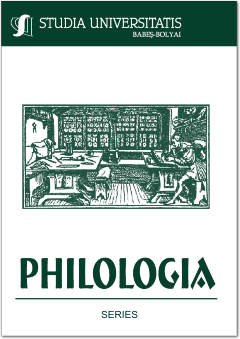CONTEMPLATING JAPANESE LANGUAGE – IDIOMATIC EXPRESSIONS AS A CULTURAL EXPERIENCE OF LINGUISTIC CREATIVITY
CONTEMPLATING JAPANESE LANGUAGE – IDIOMATIC EXPRESSIONS AS A CULTURAL EXPERIENCE OF LINGUISTIC CREATIVITY
Author(s): Rodica FrentiuSubject(s): Language studies, Language and Literature Studies, Foreign languages learning, Theoretical Linguistics, Applied Linguistics, Studies of Literature, Philology, Translation Studies, Theory of Literature
Published by: Studia Universitatis Babes-Bolyai
Keywords: idiomatic expression; Japanese language; linguistic creativity; cultural semiosphere; individuality of language;
Summary/Abstract: Contemplating Japanese Language – Idiomatic Expressions as a Cultural Experience of Linguistic Creativity. Taking into account the semiotic nature of the language seen as a datum, and approaching linguistic creation as a fact determined by the needs of verbal communication, the present study analyzes Japanese idiomatic expressions which enable the circulation of cultural meanings. An idiomatic expression resembles the folk saying, as they both experience and highlight the conative function of language, and is a complex syntactic-semantic unit, often replaceable by one single word, which can be interpreted as a semiotic sign within a significant system of an ethnic group’s mentality. The Japanese idiomatic structure is a fixed form that belongs to the lexicalized repertory of language, resulting from syntactic linguistic phenomena which capitalize upon the possibilities of the system. The purpose of this process is to achieve expressivity, which works not just through emotional response or perceptual information, but also as encyclopedic knowledge. Both these linguistic and extralinguistic contexts call for a hermeneutic approach, in inter- and multidisciplinary terms.
Journal: Studia Universitatis Babes-Bolyai - Philologia
- Issue Year: 64/2019
- Issue No: 2
- Page Range: 179-192
- Page Count: 14
- Language: English

